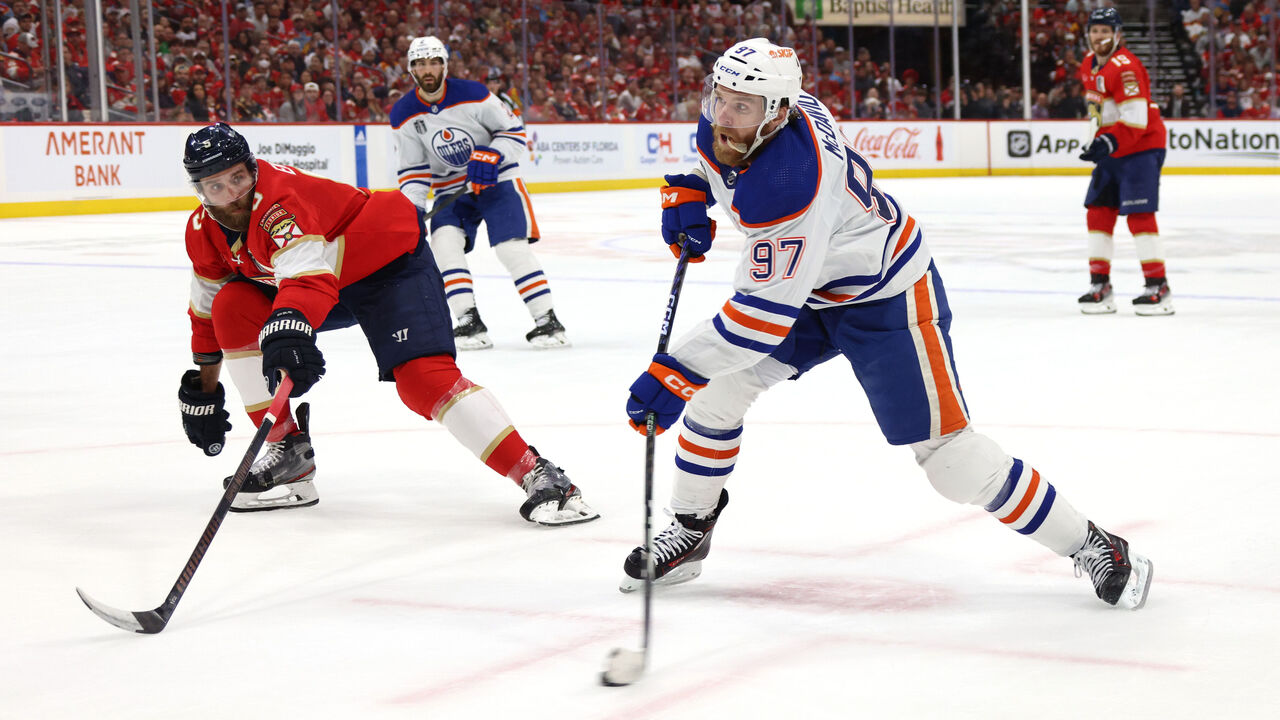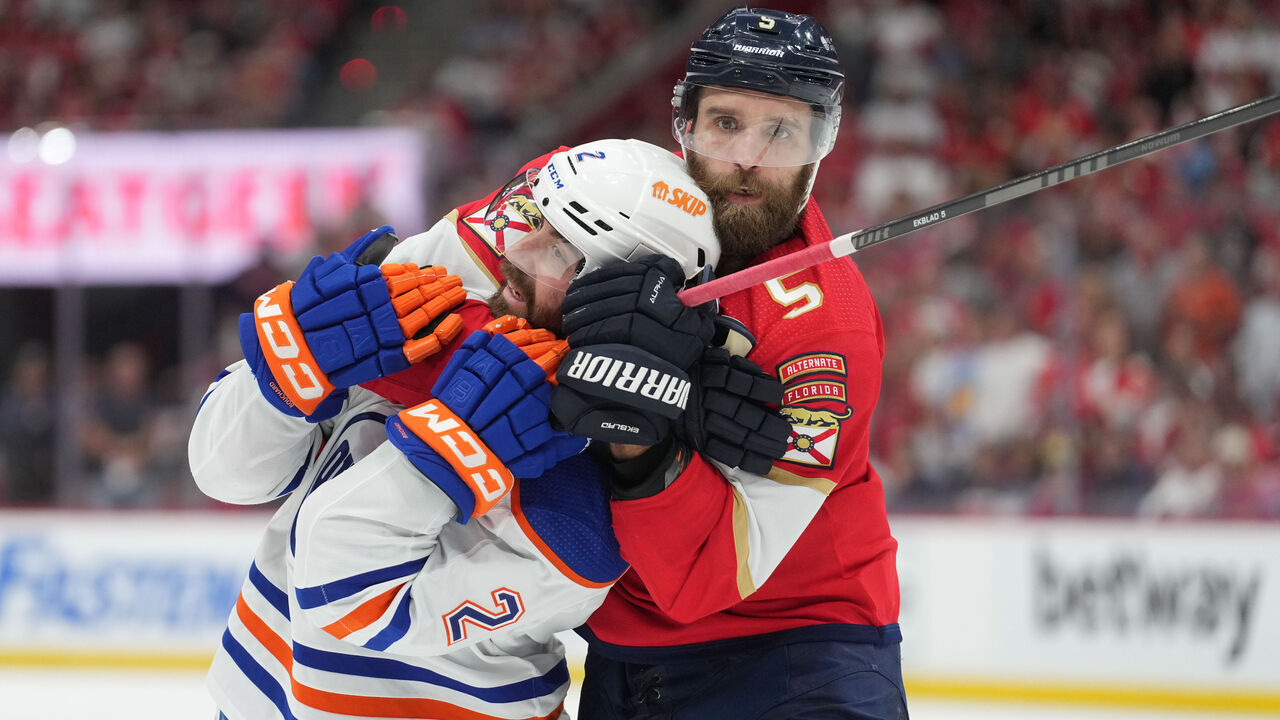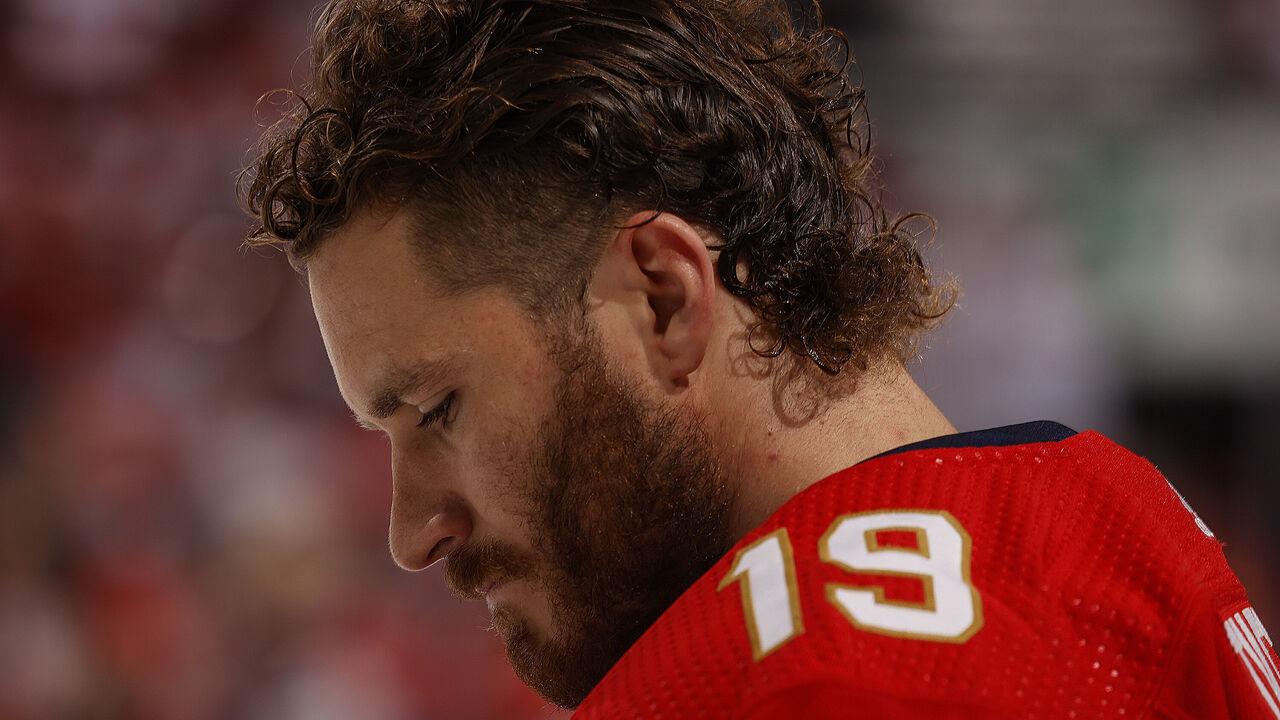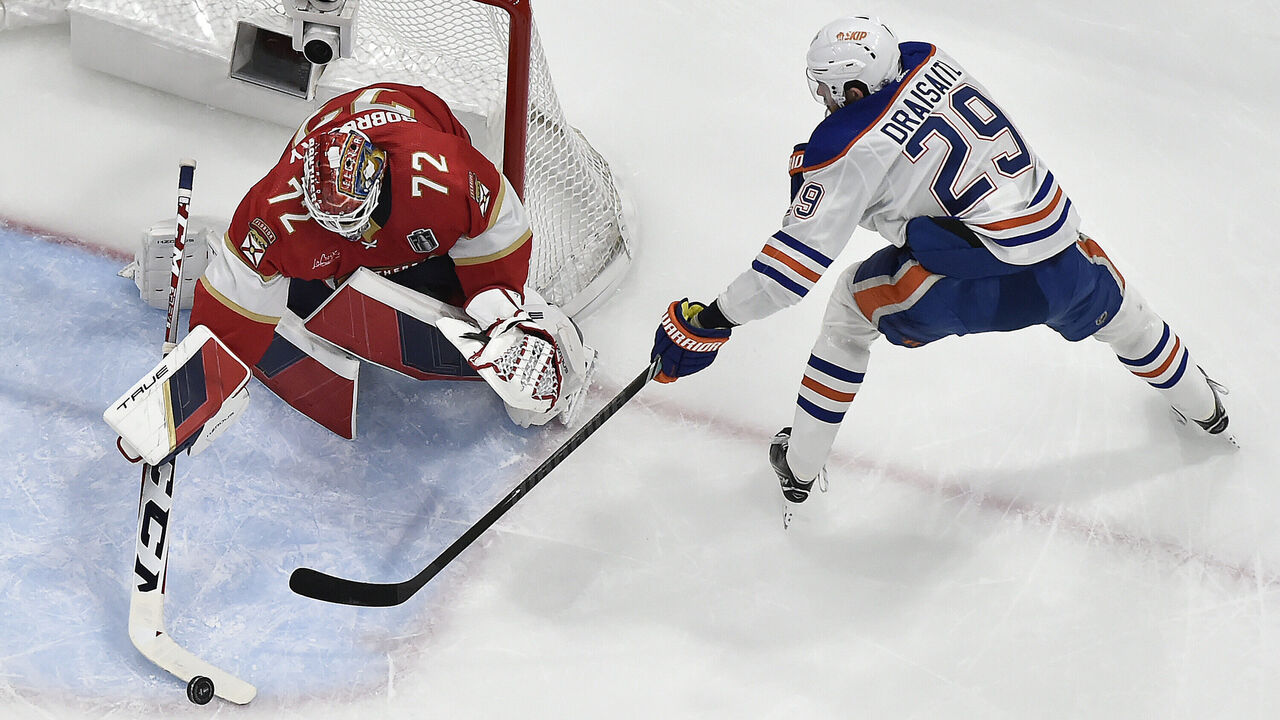What to watch as Oilers push for change in Game 3
The Florida Panthers have earned a 2-0 series lead over the Edmonton Oilers courtesy of 3-0 and 4-1 victories to open the Stanley Cup Final. Game 3 goes on Thursday night at Edmonton's Rogers Place. Here are three things to watch as the Oilers push for change.
Home-ice adjustments

A series summary from the Oilers' perspective: They played well enough to win Game 1 but lost in large part due to a phenomenal goaltending performance from Sergei Bobrovsky. Game 2 was less inspiring - though not a complete dud - and now Edmonton must string together four wins over a five-game span.
In other words, the Oilers are learning about impossibly thin margins.
They'll gain the benefit of last change for Game 3, and coach Kris Knoblauch must do everything in his power to get Connor McDavid favorable matchups. "Favorable" is anyone other than Aleksander Barkov and Gustav Forsling.
Barkov, the model shutdown center, might be unavailable for Game 3, which would be a huge break for the Oilers. Forsling and defense partner Aaron Ekblad have been on the ice for 24 of McDavid's 32 five-on-five minutes in the series. The Oilers captain has looked his usual tantalizing self in transition and is maintaining possession of the puck in the offensive zone. However, as the table below shows, he's struggled to turn possession into prime scoring chances.
In last year's final, Vegas beat Florida by jamming up the slot area with bodies, insulating goalie Adin Hill. This year, Florida is beating Edmonton by insulating Bobrovsky - but in a different way. Their defensive shell is multi-layered: the first defender tries to keep McDavid on the perimeter; if 97 beats that guy, a second defender is hounding him, and a third is lurking nearby.
Forsling's been particularly disruptive to the Oilers' best-laid plans. His first few steps are quick enough to keep up with McDavid. He combines that skating ability with elite anticipation skills and an active stick to close gaps.
McDavid's eight minutes away from Barkov and Forsling haven't been pretty for Florida. Depth players like Kyle Okposo have been holding on for dear life as McDavid weaves in and out of traffic. Eventually, those sequences will turn into goals. Knoblauch won't get the perfect matchup every shift at home, but if McDavid can escape Barkov and Forsling for, say, 50% of his five-on-five minutes, Edmonton will see results.
Knoblauch also shouldn't be shy about going nuclear. Throw out McDavid, Leon Draisaitl, Zach Hyman, Evan Bouchard, and Mattias Ekholm for the odd offensive-zone faceoff. Florida simply can't match that five-man unit.
Bubbling issue

The Oilers' blue line is in disarray.
Bouchard, firmly the No. 1 defenseman at 24 years old, is coming off arguably his worst game of the playoffs. Darnell Nurse is hurt, playing just 4:20 in Game 2. Both recent scratch Cody Ceci and fill-in Vincent Desharnais are unreliable.
Knoblauch doesn't have many cards to play, but he should split up Bouchard and Ekholm to even out the pairings. Bouchard can skate alongside another puck-mover in Philip Broberg, while Ekholm and veteran Brett Kulak can form a shutdown duo. In this scenario, the bottom pair (regardless of who's on it) can be used sparingly and deployed strategically.

Coach Paul Maurice probably isn't losing sleep over matchups, because Florida's third line has been fantastic. The Panthers have outscored the Oilers 1-0 while accounting for 76% of the expected goals in Anton Lundell, Vladimir Taraseko, and Eetu Luostarinen's 16 minutes together.
Even if Lundell moves up in Barkov's absence, Florida can dress a better bottom-six group. Edmonton's third and fourth lines have generated next to nothing in this series - on trend with the rest of the Oilers' playoff run.
Something to keep in mind: we have yet to witness a signature performance from Matthew Tkachuk. Shot attempts are 23-16 in Florida's favor when the superstar winger's been on the ice during five-on-five action. He's recorded five shots on goal, drawn a penalty, and continues to be excellent along the walls in all three zones. A massive Game 3 feels almost inevitable.
Sleeping giant?
Zero for seven. Nothing in 11 minutes and 28 seconds.
No matter how you express the Oilers' power-play numbers in this series, the Oilers haven't executed. Given how much they rely upon the man advantage to win games, this is the worst possible time for a dry spell.
There's hope. The power play struggled early in the Western Conference Final before scoring four goals over five opportunities in Games 5 and 6, and the scoring chances, including multiple hit posts, have been there versus Florida.

McDavid, whose one point is a four-on-four assist, has been buzzing around the zone on the power play. Puck and body movement, overall, has been decent for the Oilers. The Panthers' aggressive penalty kill has been proactive, though, so most seam passes have found the wrong skates or sticks.
McDavid has even tried to do it all himself a few times, winding up for a coast-to-coast rush at the end of a shift only to hit a wall of three or four defenders inside Florida's zone. Hyman's been close to converting on a few loose pucks. Bouchard's unleashed his deadly slap shot a few times, but not often enough. The Oilers desperately need to create more in-zone two-on-ones.
Then there's Draisaitl. Overall, it's hard to criticize the big German. He's amassed 28 points in 20 playoff contests this year and ranks fifth in NHL history in postseason points per game. But Draisaitl has been nearly invisible in the final. He's had issues getting off the wall at even strength and on the man advantage, putting a ceiling on his playmaking and finishing. It's not too late to rebound.
John Matisz is theScore's senior NHL writer. Follow John on Twitter (@MatiszJohn) or contact him via email ([email protected]).